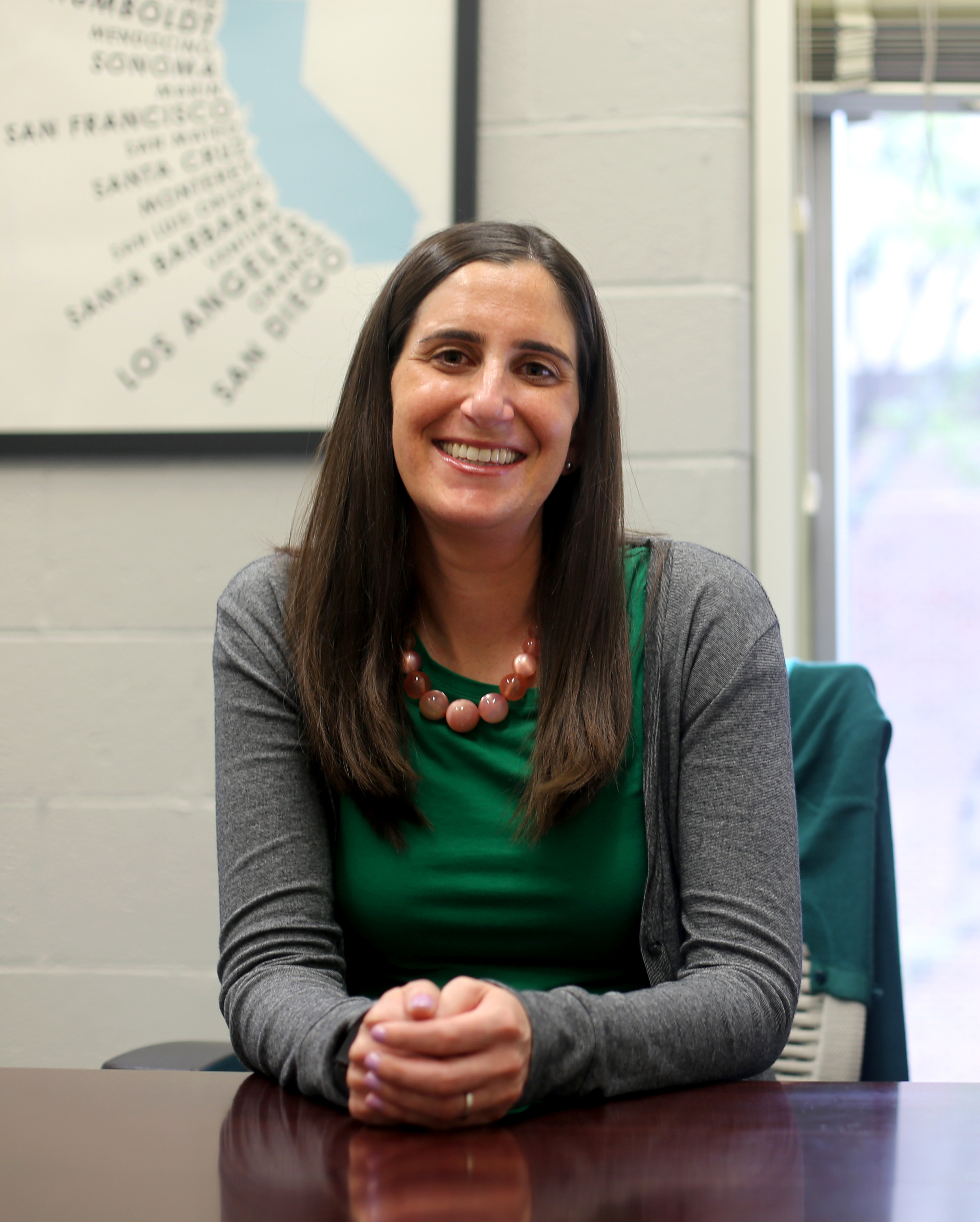OMNIA Q&A: Politics and Religion: Chicken or Egg?
Michele Margolis, Assistant Professor of Political Science, discusses the effect of politics on religious identity.
As the midterms approach, polls will examine voter dynamics ad nauseam. But what is the genesis of voters’ personal belief systems? In her book, From Politics to the Pews: How Partisanship and the Political Environment Shape Religious Identity, Michele Margolis, Assistant Professor of Political Science, focuses on the intersection of the Christian faith and politics in the U.S. Here, we discuss the book, as well as her newest research.
What was the impetus for the book?
The main argument of my book is that your political identity, namely your partisanship, can shape your religiosity—whether you identify with a faith or you choose to be a religious non-identifier—and that this happens at a very specific time in your life. When you look at the fields of sociology, psychology, and religious studies, there’s a lot of research into what forms people’s religious views and activity, but there's a certain disconnect when it comes to political science. There’s a lot of research that's out there that suggests churches are great mobilizers for political participation. This suggests that some of the credit we're giving to religion is actually a function of politics filtering people out.
The book frames many of its arguments around a theory you refer to as the “life cycle.” Can you describe this term?
People are raised with religion but most naturally fall away from belief during their formative years. This is not true for everyone, and they don't necessarily become hostile to religion, but it is shifted to the periphery. Then you get married, you have children, and all of a sudden you’re faced with questions like: How do you want to raise your child? Are you never going to go to church? Are you going to do Christmas and Easter? Are you going to have the child baptized? No one wants to go spend their Sunday hearing messages that they disagree with. You don't want to have to take your child to church and then in the car ride home say, by the way, we don't believe that part. And so this is a time when you're going to find a religious community that suits your pre-existing identities.
One of those identities that we know forms before this time period is your political identity. And people's partisanship tends to really solidify in adolescence and young adulthood, so that by the time you're making these decisions about your religious views a little later in life, you already have a partisan identity.
One method you use to examine the relationship between politics and religion are the social interactions that take place at religious gatherings. Can you describe this dynamic?
When we talk about religion in an academic context it can be very confusing because it concerns your deeply-held beliefs about God and the afterlife. But it's also about community—about going where your friends are. So in many cases, if politics make you more religious, you are more likely to be part of a traditional conservative community.
My newest research following the book further examines these intersections. I conducted six weeks of field work this past summer in Alabama. The interviews corresponded with events like the Roy Moore-Doug Jones election. In some respects, evangelicals get a raw deal in the media because they're portrayed as being hypocrites for supporting Trump. But I think that all of us engage in similar biased decision-making strategies. Many evangelicals talked about being hesitant to support Trump. They professed that Trump was not their preferred candidate in the primary—that they voted against Clinton, not for Trump. That said, they are currently very happy with how he's doing.
I also spoke to pastors. On average, they were more moderate and even cited pushback they had received after sermons. These are not liberal pastors, but they do take a love thy neighbor approach, regardless, for instance, of that neighbor's immigration status. I asked these same pastors: How much do you talk about politics in your sermons? And they said never. They would tell people to go vote, but wouldn't say who to vote for. But then I asked if they discussed issues like abortion and homosexuality, and they said yes. So all these things that we think of as hot-button political issues are being discussed are not viewed as political in the conservative, white religious community, and that goes a long way to understanding some of these dynamics.
One of the chapters in your book examines how race factors into religious social interactions. Can you discuss?
Voters are often viewed as monolithic. African Americans are the most solidly Democratic group, and they're also the most religious group in America. African American Protestants are more religious than white evangelicals, as far as how often they go to church, and the nature of their beliefs. Because of this, African Americans, in some respects, share many of the same views as white Republicans, which is that they become less involved with religion in young adulthood, but that they rebound to a greater extent when they get older.
Black churches, even more so than white evangelical churches, are very likely to be political, in part because of the civil rights movement. There is more likely to be a pastor that talks explicitly about politics, and the church is more likely to have voter registration drives where the assumption is you're registering for the Democratic Party. You also have Democratic candidates coming and visiting these black churches. And so for Black Democrats, being religious is not seen as cognitive dissonance, because that's their experience. You go to church and you interact with other like-minded people. Whereas if you are white and want to be a committed Democrat who also wants to be involved in a religious community, there are liberal congregations that you can join, but you have to actively seek those out.



